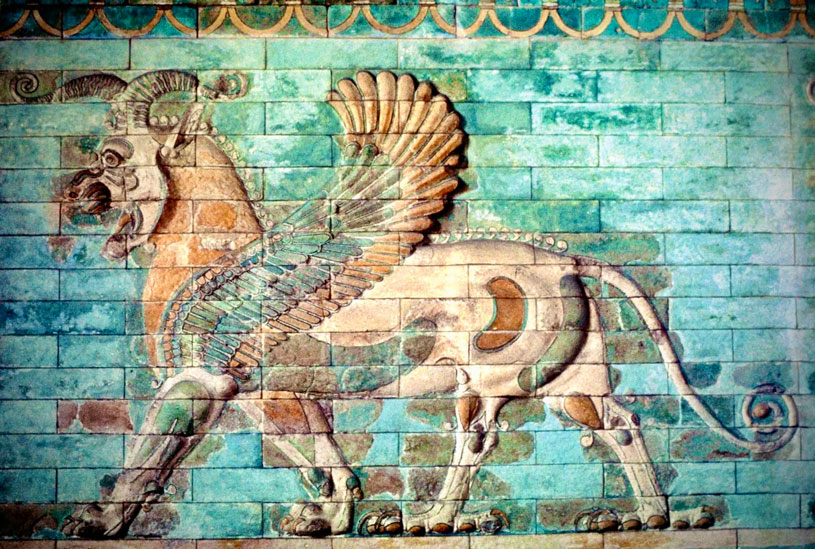Herodotus and brand culture in the Persian court

We have all heard that “Those who fail to study history are doomed to repeat it.” History is just the study of people confronted with challenges and their reactions to them. In business we can learn a lot from history.
Branding is the personification of business organizations and it helps customers understand a company and their products if we communicate in clear human terms that customers relate to comfortably.
The ancient Greek historian Herodotus travelled the Mediterranean and Middle East in the 5th Century B.C. leaving behind stories of the Egyptians, Greeks, and the Achaemenid Persian Empire among others.
Herodotus was the first writer to investigate and relate his own firsthand experiences and secondhand retellings of historical events. He is often referred to as “The Father of History.”
Centered in what is Iran today, the mighty Achaemenid Persian Empire lasted only about 200 years but left a great impact on world history in that short span of time. Not only as a perennial rival for the Greeks and particularly Alexander the Great, but also for their vast economic, political and multicultural influence created in so short a time.
But what did the Persians know about brand culture?
Herodotus tells us that the Persian King Darius once gave a great banquet that lasted for days inviting guests from near and far including dignitaries from Greece and India. Darius was an inquisitive man. He quizzed the guests about local customs in their respective countries before asking specifically about burial customs of their parents. He wanted to know how different cultures honored their deceased loved ones.
The Greeks, known for their elaborate burial rituals, responded that they would cremate their dead parents and then preserve their ashes in ornate urns. They believed in conducting proper funeral rites, such as offering funeral processions, eulogies, and feasts in honor of the departed.
Turning next to the appalled Indians, they told Darius that they did not practice cremation and found it a horrible practice. Instead they believed in exposing the bodies of their deceased parents to be consumed by birds and animals in specially designated areas known as “Towers of Silence.” Known as “sky burial” the Indians believed in the transitory state of the physical body and the idea of returning it to nature. Of course the Greeks in turn were disgusted by this foreign notion.
Darius marveled at the stark differences in burial customs between these two cultures. Each group found the others’ practices repugnant bordering on offensive. Both were so entrenched in their own beliefs. They refused to even entertain the other side’s customs and values.
Darius knew he had struck a nerve. He saw clearly how different peoples even within the same empire could hold widely differing cultural and religious beliefs. Some ingrained human beliefs are very difficult to change.
The lesson is that our beliefs are all parochial. It requires an open mind to consider new ideas that we might hate the first time we hear them.
The lesson is that our beliefs are all parochial.
The story from Herodotus is a metaphor for misunderstandings within companies and their brand culture today.
Deeply-held immovable beliefs persist in many business organizations. They are not only tolerated but embraced and repeated in phrases like, “That’s the way we do it here.” We’re told “Don’t rock the boat.” It almost feels like bullying and it is usually a result of short-sighted poor leadership or what I call “The emperor has no clothes” scenario.
For all of the attention given to diversity today, challenging your firm’s sacred cows or conventional thinking can be a lonely or even dangerous career move in some companies.
Brand culture requires tolerance
Branding, like history, is ultimately a search for truth.
Without open, candid communication good branding is a pipe dream. Every voice should be heard without fear of recrimination.
In workshops, interviews with employees and stakeholders or even customers, I encourage frank criticism in a non-judgemental atmosphere free from retribution later.
Tolerance for radical or opposing ideas will help us understand motivations, behaviors and decision making. It’s the only way to get to the truth about your company and the brand you represent.
Poorly written history like bad branding focuses too much on your own views of the universe, your own desires and agenda. It is limited, blinded and short on truth. When unquestioned or unchallenged, it becomes an egotistical exercise and a waste of time and resources.
Make room for new ideas and have the patience and courtesy to hear them out.

About Hallaron Advertising Agency
Mike Hallaron is founder and principal partner and has served as director of accounts at Hallaron Advertising Agency in The Woodlands, Texas since 2003. The agency works closely with clients supplying branding and advertising strategy and implementing effective, award-winning campaigns. More than just an idea shop, Hallaron is a full-service agency focused on increasing client’s sales using branding, marketing, and media services.
(281) 299-0538
2001 Timberloch Place, Suite 500
The Woodlands, Texas 77380

